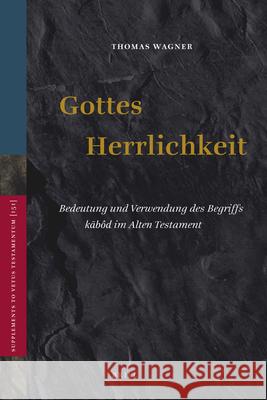Gottes Herrlichkeit: Bedeutung Und Verwendung Des Begriffs Kābôd Im Alten Testament » książka
Gottes Herrlichkeit: Bedeutung Und Verwendung Des Begriffs Kābôd Im Alten Testament
ISBN-13: 9789004223370 / Angielski / Twarda / 2012 / 512 str.
Die Untersuchung des Begriffs kābod JHWH im Alten Testament weist drei Profile einer biblischen kābod-Theologie auf. Wahrend die altorientalischen Quellen die Wurzel kbd / kbt jeweils mit der Bedeutung 'Schwere' oder 'ehren' verwenden, entwickelten es die biblischen Autoren in einem langerem Traditionsprozess zu einem Aspekt gottlicher Gegenwart fort. Die Studie zeigt, dass die Priesterschrift, das Buch Jesaja und das Buch Ezechiel unterschiedliche Motive aus unterschiedlichen Quellen, biblischen und nicht-biblischen aufnahmen und auf diese Weise drei literarische Profile des gottlichen kābod. Die Untersuchung spaterer Pentateuch- und Jesajatexte weist auf Wechselwirkungen hin, wahrend die Vorstellungen des Ezechielbuches nicht weiter aufgenommen wurden. The investigation focusses on the meaning and function of the term kābod JHWH in the Hebrew Bible and presents three profiles of kābod-Theology. While Ancient Near Eastern sources contain the root kbd / kbt always with the meaning 'heaviness' or 'to hounour', in biblical texts the authors developed the term towards an aspect representing his presence. The study shows that the Priestly sources of the Pentateuch, the Book of Isaiah and the Book of Ezekiel contain different images deriving from various sources - bilibcal and non-biblical - forming three literary profiles of the divine kābod. The investigation of later Pentateuchal and Isaian texts shows that these texts interact while the profile of the Ezekialian tradition was not incorprated anymore.











